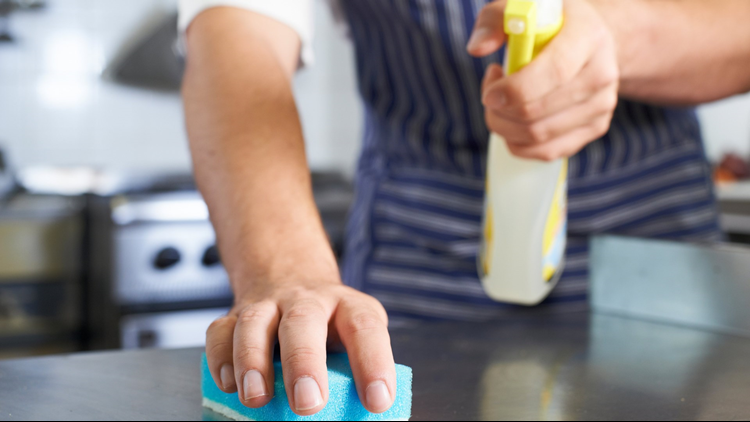CALIFORNIA, USA — Socorro Diaz, who has worked cleaning houses for 17 years, was still trying to digest Gov. Gavin Newsom’s veto of a bill that would have provided protections for domestic workers.
“I am very angry, very sad because I know that my work is worthy and deserves respect,” said Diaz.
SB 1257, which was approved by the Legislature on Aug. 27, requires the state Division of Occupational Safety and Health (Cal/OSHA) to convene an advisory committee of owners and employees to develop specific regulations in domestic service. About 300,000 workers would be covered, including house cleaners, caregivers for the elderly and children, gardeners and others.
The measure would require employers to notify domestic workers of job hazards. It would bring about 11 million California homes and apartments under Cal/OSHA’s jurisdiction.
However, Newsom vetoed the law Tuesday stating that the places people live cannot be treated the same as a traditional workplace or worksite from a regulatory perspective.
“SB 1257 would extend many employers’ obligations to private homeowners and renters, including the duty to create an injury prevention plan and requirement to conduct outdoor heat trainings,” Newsom said in his veto statement. “Many individuals to whom this law would apply lack the expertise to comply with these regulations.”
Maegan Ortiz, executive director of the Institute of Popular Education of Southern California (IDEPSCA), said that the governor’s veto goes against his political image as pro-immigrant, pro-worker and pro-woman.
“What are they going to tell women who can die from coronavirus because they contracted it at work?” Ortiz questioned. “Or if an accident happens? That’s why owners have home insurance. There are many regulations that the owners have to follow.”
A City University of New York study of 700 California domestic workers found that more than 75% have experienced at least one work-related injury, illness or other harm in the past year.
The study, “Unprotected on the Job: How Exclusion from Safety and Health Laws Harms California Domestic Workers,” also found that 1 in 4 workers said they contracted a contagious disease at work in the past year. A similar number have experienced verbal or physical assault from employers or clients.
The fight continues despite the defeat
Diaz, who resides in Sonoma County in Northern California, said the need to earn money has forced her to clean houses, putting her health at risk. During fire season, the houses that are rescued are full of ash and smoke and not even the fan helps to reduce the contaminated smoke and dust, she explained.
“I don’t feel comfortable asking for personal protective equipment like gloves or masks,” Diaz said. “I had to take my gloves and my mask.”
The domestic worker said that since 2017 she had been going to clean houses after each fire but after seeing the governor’s reaction, she is no longer willing to put her health at risk.
“The danger suffered by domestic workers will fall over his shoulders, not only in Sonoma but throughout California,” said Diaz, who is married and has three children.
Sen. Maria Elena Durazo, who authored the bill, said she was disappointed by the governor’s decision especially at a time when wildfires are hitting California severely amid a global pandemic.
“California’s occupational safety and health standards should apply to domestic workers, who put their lives at risk when reporting to work,” Durazo said. “I stand committed to ensure domestic workers get the dignity and respect that they deserve.”
Durazo said she will resume working with domestic worker advocates to reintroduce the bill next year.
Jacqueline García is a reporter with La Opinión in Los Angeles. This article is part of The California Divide, a collaboration among newsrooms examining income inequity and economic survival in California.



